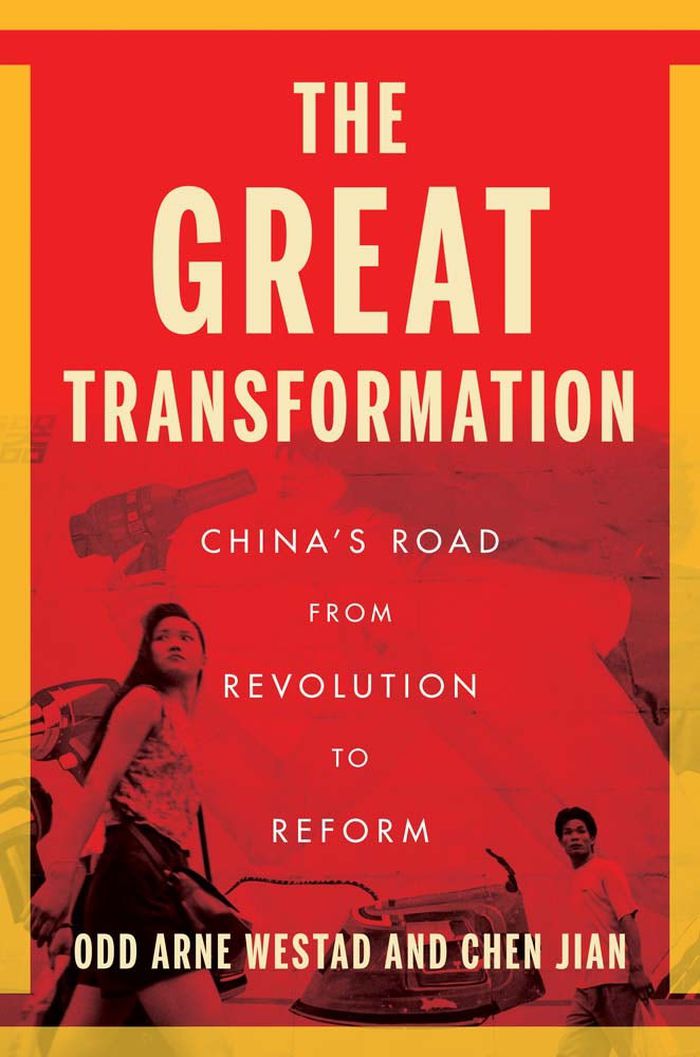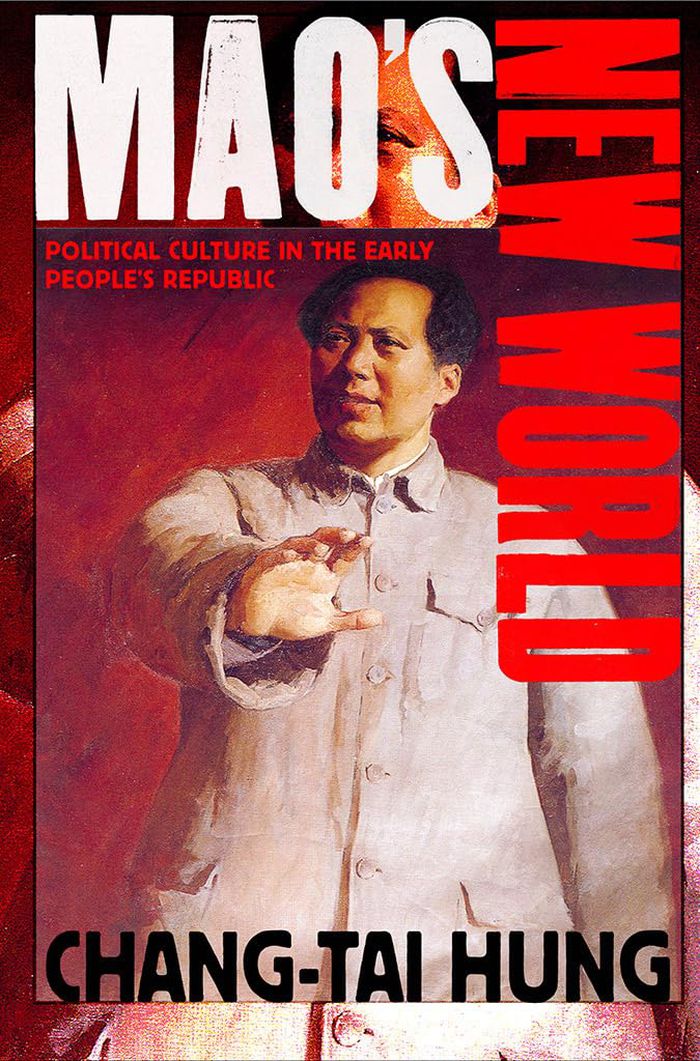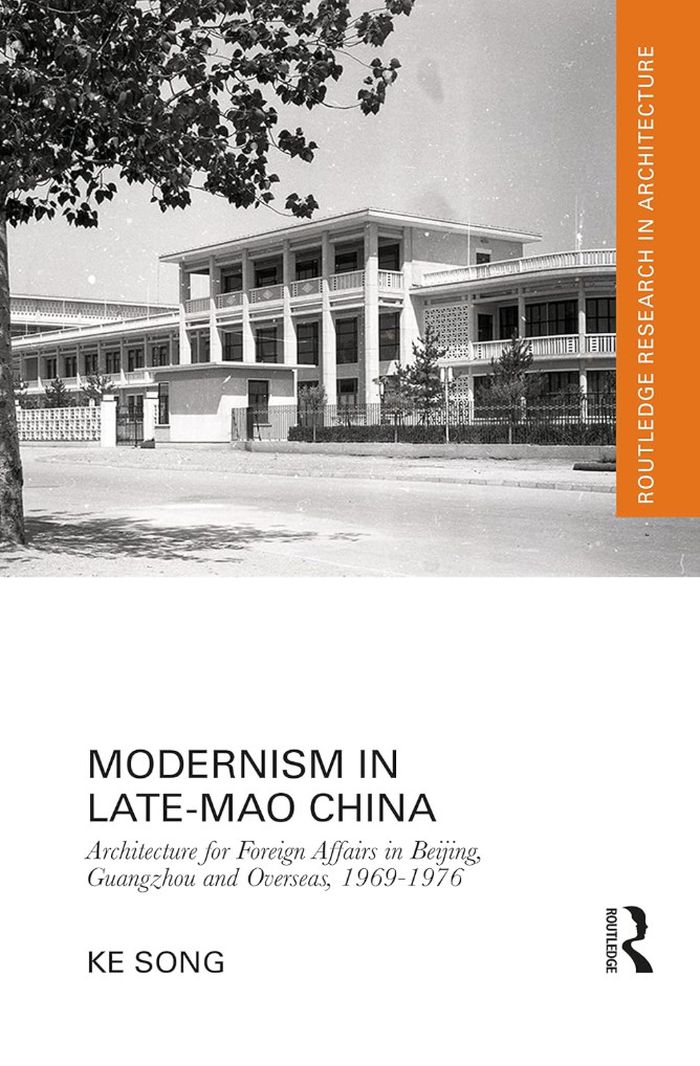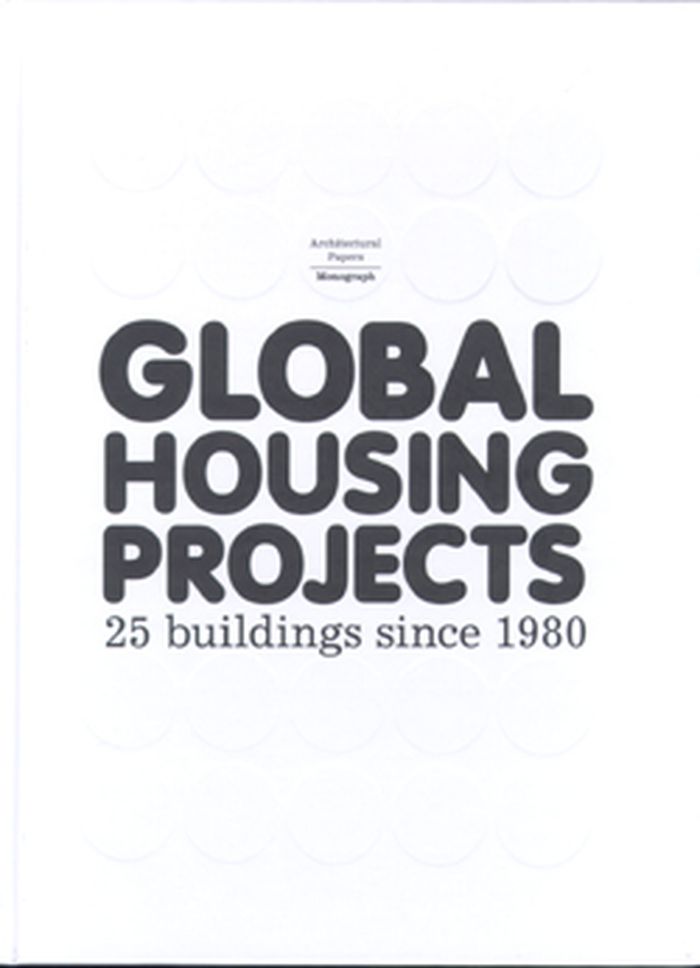$55.95
(disponible en magasin)
Résumé:
Odd Arne Westad and Chen Jian chronicle how an impoverished and terrorized China experienced radical political changes in the long 1970s and how ordinary people broke free from the beliefs that had shaped their lives during Mao’s Cultural Revolution. These changes, and the unprecedented and sustained economic growth that followed, transformed China and the world. In(...)
The great transformation: China's road from revolution to reform
Actions:
Prix:
$55.95
(disponible en magasin)
Résumé:
Odd Arne Westad and Chen Jian chronicle how an impoverished and terrorized China experienced radical political changes in the long 1970s and how ordinary people broke free from the beliefs that had shaped their lives during Mao’s Cultural Revolution. These changes, and the unprecedented and sustained economic growth that followed, transformed China and the world. In this rigorous account, Westad and Chen construct a panorama of catastrophe and progress in China. They chronicle China’s gradual opening to the world—the interplay of power in an era of aged and ailing leadership, the people’s rebellion against the earlier government system, and the roles of unlikely characters: overseas Chinese capitalists, American engineers, Japanese professors, and German designers. This is a story of revolutionary change that neither foreigners nor the Chinese themselves could have predicted. Hardcover edition.
Expositions en cours
$112.00
(disponible sur commande)
Résumé:
I. M. Pei (1917–2019) was one of the world's most influential architects. Born and raised in China, Pei trained and worked in the United States, establishing a practice that spanned seven decades and multiple continents. His legacy includes the realization of some of the most high-profile projects of the late twentieth and early twenty-first centuries, from the(...)
octobre 2024
I. M. Pei: Life is architecture
Actions:
Prix:
$112.00
(disponible sur commande)
Résumé:
I. M. Pei (1917–2019) was one of the world's most influential architects. Born and raised in China, Pei trained and worked in the United States, establishing a practice that spanned seven decades and multiple continents. His legacy includes the realization of some of the most high-profile projects of the late twentieth and early twenty-first centuries, from the modernization of the Louvre in Paris to the design of the Museum of Islamic Art in Doha. Going beyond the usual building-by-building format of most architectural monographs, "I. M. Pei: Life is architecture" is organized thematically, exploring Pei's life and work through six topics that were central to his unique approach to architecture: transcultural identity, urban redevelopment, art and civic form, material and structural innovation, politics and patronage, and regenerating cultural and historical archetypes. Bringing together previously unpublished archival materials, specially commissioned essays, new photography, and personal contributions from those who knew and worked with Pei, this book presents both celebrated and lesser-known aspects of the architect's life and career while solidifying his position in architectural history and popular culture.
Shanghai Bund Architecture
$21.50
(disponible en magasin)
Résumé:
The Bund was once a mud land criss-crossed with farm fields, wild reeds, and a rooster fighting yard. Then its shape transformed dramatically looking similar to a European City, thus the mud Bund became the modern and attractive gold Bund. The stories of the Bund are about how the mud land turned into a billion-dollar skyline. The book records the past and present(...)
Shanghai Bund Architecture
Actions:
Prix:
$21.50
(disponible en magasin)
Résumé:
The Bund was once a mud land criss-crossed with farm fields, wild reeds, and a rooster fighting yard. Then its shape transformed dramatically looking similar to a European City, thus the mud Bund became the modern and attractive gold Bund. The stories of the Bund are about how the mud land turned into a billion-dollar skyline. The book records the past and present details of 30 buildings on the Bund north of Yan 'an East Road, and shares hundreds of architectural photos and historical pictures. The 30 buildings listed in the book are accompanied by the latest tourist tips, as well as colorful architectural maps of the Bund and data analysis charts. The great changes in Shanghai can be seen more clearly from the authors' unique perspective.
Expositions en cours
Shanghai Shikumen: Citywalk
$26.95
(disponible en magasin)
Résumé:
The book shows a unique residential kind of building in Shanghai called Shikumen and records its architectural style and the use of space. A travel guide to 40 of Shanghai's most representative Shikumen lanes is also provided and is compared with the Shanghai block map in the 1940s of the 20th century. The book also collects 120 pictures of the architecture and life of(...)
Shanghai Shikumen: Citywalk
Actions:
Prix:
$26.95
(disponible en magasin)
Résumé:
The book shows a unique residential kind of building in Shanghai called Shikumen and records its architectural style and the use of space. A travel guide to 40 of Shanghai's most representative Shikumen lanes is also provided and is compared with the Shanghai block map in the 1940s of the 20th century. The book also collects 120 pictures of the architecture and life of Shikumen Lilong, and the author has compiled 400 Shikumen Lilong directories based on his accumulation of years of visiting Shikumen, which can become a guide for readers to stroll through Shikumen Lilong houses and experience Shikumen City Life.
Expositions en cours
$56.95
(disponible en magasin)
Résumé:
In this sweeping portrait of the political culture of the early People's Republic of China (PRC), Chang-tai Hung mines newly available sources to vividly reconstruct how the Chinese Communist Party (CCP) tightened its rule after taking power in 1949. With political-cultural projects such as reconstructing Tiananmen Square to celebrate the Communist Revolution; staging(...)
Mao's new world: Political culture in the early People's Republic
Actions:
Prix:
$56.95
(disponible en magasin)
Résumé:
In this sweeping portrait of the political culture of the early People's Republic of China (PRC), Chang-tai Hung mines newly available sources to vividly reconstruct how the Chinese Communist Party (CCP) tightened its rule after taking power in 1949. With political-cultural projects such as reconstructing Tiananmen Square to celebrate the Communist Revolution; staging national parades; rewriting official histories; mounting a visual propaganda campaign, including oil paintings, cartoons, and New Year prints; and establishing a national cemetery for heroes of the Revolution, the CCP built up nationalistic fervor in the people and affirmed its legitimacy. These projects came under strong Soviet influence, but the nationalistic Chinese Communists sought an independent road of nation building; for example, they decided that the reconstructed Tiananmen Square should surpass Red Square in size and significance, against the advice of Soviet experts sent from Moscow.
Expositions en cours
Modernism in late-Mao China
$81.50
(disponible en magasin)
Résumé:
This book investigates the architectural history of China in the Mao era (1949–1976), focusing on the rise of modernism in the last seven years of the Cultural Revolution from 1969 to 1976. It highlights the new architecture of this period, exemplified by three clusters of buildings for foreign affairs, namely buildings for foreign diplomacy in Beijing, buildings for(...)
Modernism in late-Mao China
Actions:
Prix:
$81.50
(disponible en magasin)
Résumé:
This book investigates the architectural history of China in the Mao era (1949–1976), focusing on the rise of modernism in the last seven years of the Cultural Revolution from 1969 to 1976. It highlights the new architecture of this period, exemplified by three clusters of buildings for foreign affairs, namely buildings for foreign diplomacy in Beijing, buildings for foreign trade in Guangzhou and China’s foreign aid projects overseas. The emergence of new architecture in the early 1970s is closely associated with China’s political and diplomatic shift of the time, from a radical emphasis on ideological struggle to a dynamic balance between leftist ideology and pragmatic concerns. In this context, China’s relations with the West quickly improved, culminating with American president Richard Nixon’s visit to China in 1972. The increasing foreign affairs brought new opportunities to Chinese architects who referenced both Western modernism and Chinese architectural traditions to create a new version of Chinese modernism. The book brings dimensions of form, politics and knowledge to the analysis of architecture, to construct an understanding of architectural design as an aesthetic, political and intellectual practice.
Expositions en cours
The great transformation
$33.95
(disponible en magasin)
Résumé:
Odd Arne Westad and Chen Jian chronicle how an impoverished and terrorized China experienced radical political changes in the long 1970s and how ordinary people broke free from the beliefs that had shaped their lives during Mao’s Cultural Revolution. These changes, and the unprecedented and sustained economic growth that followed, transformed China and the world. In(...)
The great transformation
Actions:
Prix:
$33.95
(disponible en magasin)
Résumé:
Odd Arne Westad and Chen Jian chronicle how an impoverished and terrorized China experienced radical political changes in the long 1970s and how ordinary people broke free from the beliefs that had shaped their lives during Mao’s Cultural Revolution. These changes, and the unprecedented and sustained economic growth that followed, transformed China and the world. In this rigorous account, Westad and Chen construct a panorama of catastrophe and progress in China. They chronicle China’s gradual opening to the world—the interplay of power in an era of aged and ailing leadership, the people’s rebellion against the earlier government system, and the roles of unlikely characters: overseas Chinese capitalists, American engineers, Japanese professors, and German designers. This is a story of revolutionary change that neither foreigners nor the Chinese themselves could have predicted.
Expositions en cours
Buckminster Fuller
$35.95
(disponible en magasin)
Résumé:
Première édition, premier numéros de la collection Carnets d'architectes, bibliographie "Monsieur Fuller n'est heureusement pas architecte. Il n'est heureusement pas non plus ingénieur, mais il a commencé à philosopher sur le logement, sur la machine idéale adaptée à l'habitation, sans les apriorismes formels ni architecturaux du passé." Voilà la façon dont Harvey W.(...)
octobre 2008, Gollion
Buckminster Fuller
Actions:
Prix:
$35.95
(disponible en magasin)
Résumé:
Première édition, premier numéros de la collection Carnets d'architectes, bibliographie "Monsieur Fuller n'est heureusement pas architecte. Il n'est heureusement pas non plus ingénieur, mais il a commencé à philosopher sur le logement, sur la machine idéale adaptée à l'habitation, sans les apriorismes formels ni architecturaux du passé." Voilà la façon dont Harvey W. Corbett président de Architectural League de New York, présente R. Buckminster Fuller ses collègues, l'été 1929. Née comme produit dérivé des icônes de la technologie et de la mobilité, la maison que Buckminster Fuller dévoile ce jour-là cache, un projet d'habitat entendu dans le sens le plus large. Au fil des années, de son atelier d'inventeur nomade, sortiront des prototypes des véhicules, des toilettes portables, du mobilier, des mappemondes et ses célèbres coupoles géodésiques qui lui vaudront sa réputation internationale. Inspiré de la logique d'un album de photos, ce livre articule le récit biographique sur l'œuvre de R. Buckminster Fuller avec quelques uns de ses projets-phare qui ouvrent - par leur forme ou par leur technologie des nouvelles pistes à la réflexion architecturale.
$46.95
(disponible sur commande)
Résumé:
The world is merging into one global system of goods, people and information. This book explores the social, cultural, and economic phenomena of globalization through housing. The Chair of Architecture and Design at the ETH in Zurich examines the last 25 years of housing development. This book is a historical criticism with the built projects as protagonists. Housing(...)
septembre 2008, Barcelona
Global housing projects : 25 buildings since 1980
Actions:
Prix:
$46.95
(disponible sur commande)
Résumé:
The world is merging into one global system of goods, people and information. This book explores the social, cultural, and economic phenomena of globalization through housing. The Chair of Architecture and Design at the ETH in Zurich examines the last 25 years of housing development. This book is a historical criticism with the built projects as protagonists. Housing typologies have been chosen as contemporary architectural prototypes. The selection of housing projects reflects the most innovative and influential built housing projects to propose new important guidelines in housing. The ETH Zurich is a renowned European architecture institute.
livres
$32.95
(disponible sur commande)
Résumé:
This anthology addresses the challenges of curating, presenting, and preserving new-media art—artworks that use digital technologies as media and emphasize process over object. As an art form that is inherently time based, dynamic, interactive, collaborative, customizable, and variable, new-media art resists objectification. It boldly challenges the traditional art(...)
New media in the white cube and beyond
Actions:
Prix:
$32.95
(disponible sur commande)
Résumé:
This anthology addresses the challenges of curating, presenting, and preserving new-media art—artworks that use digital technologies as media and emphasize process over object. As an art form that is inherently time based, dynamic, interactive, collaborative, customizable, and variable, new-media art resists objectification. It boldly challenges the traditional art world's customary methods of presentation and documentation as well as its approach to collection and preservation. Edited and introduced by Christiane Paul and featuring contributions by prominent practitioners—institutional and independent curators, theorists, and conservators—this volume charts developments in an exciting field and addresses the conceptual, philosophical, and practical issues of both curating and presenting new-media art.
livres
octobre 2008








